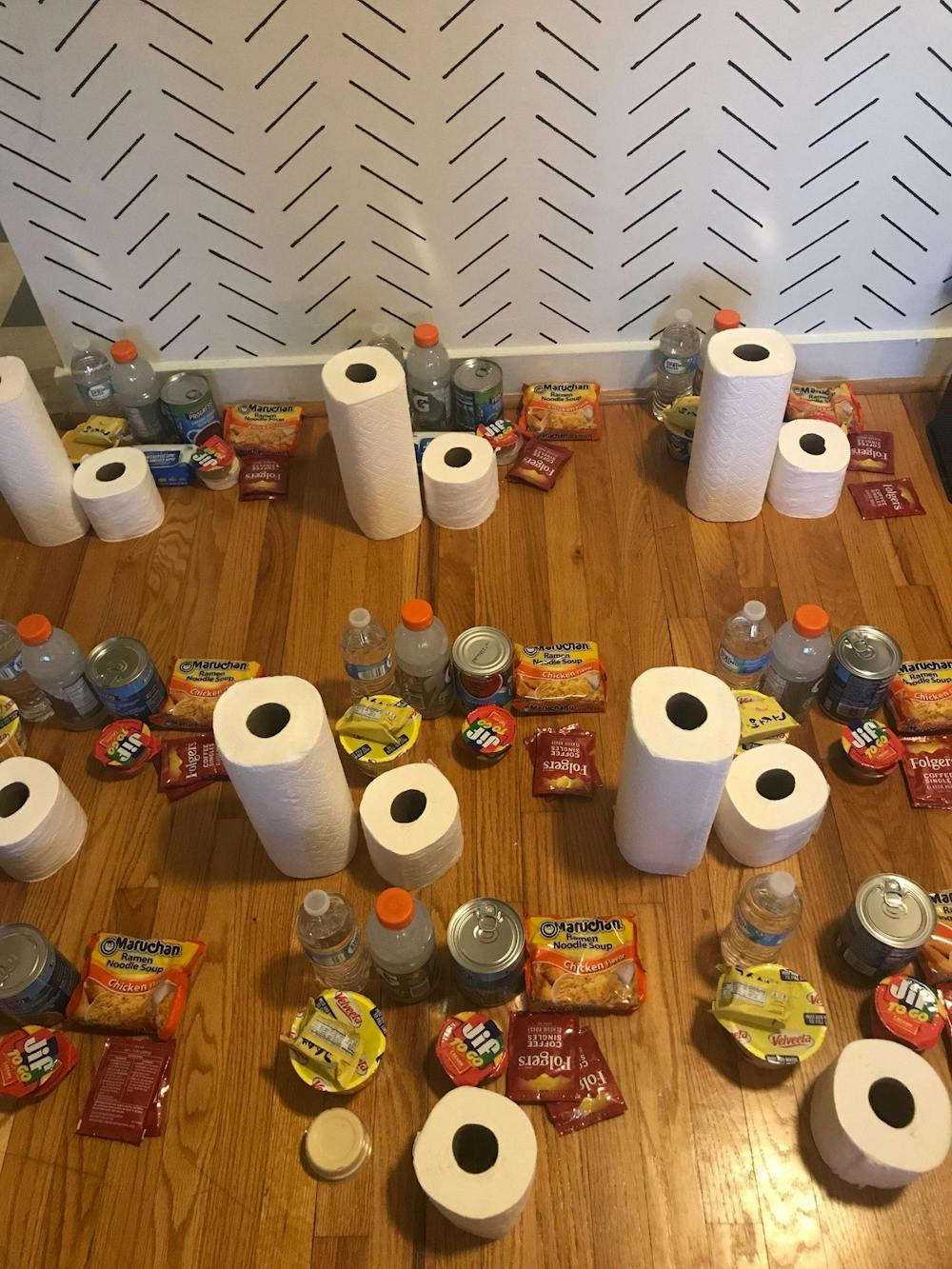The Young Democratic Socialists of America at U.Va. delivered care packages to 20 first-year student members Feb. 27 in the first phase of their mutual aid campaign, which raised more than $1,600 from over 70 donors. The money went toward groceries, toiletries and personal protective equipment for package recipients. The second phase, open to the broader University community, launched March 10, with YDSA offering kits including fresh fruit, vegetables, PPE, hand sanitizer, soap, sanitary products and microwave meals to all students who filled out a request form. The form has since closed.
“We realized very quickly … when talking to our members that everybody was suffering, whether that was mentally, with getting groceries, with access to healthy foods, even with feeling like they were useful because the situation was getting very helpless,” said Ella Tynch, YDSA communications chair and second-year College student.
At a meeting a month ago, YDSA members heard from underclassmen that some University isolation and quarantine housing did not have hand soap or extra masks for them when they arrived. University spokesperson Wes Hester noted that students were given reusable masks upon their arrival to Grounds and that hand soap was included in the isolation packing list given to students.
Instead of lobbying the University to provide these resources, Tynch said the organization realized that it could be “more effective and more efficient” by delivering it on its own.
“It’s our responsibility as a socialist organization to make sure that our members are taken care of and to make sure our community is taken care of because the whole premise of socialism is built on mutual care,” Tynch said.
YDSA called its entire membership to conduct a needs assessment, asking students about their isolation or quarantine status and if they needed anything in particular. With a clearer sense of direction, the organization began accepting donations on CashApp and Venmo.
Once it had collected enough to meet everyone’s needs and begin purchasing supplies, Tynch created a budget and wrote shopping lists. More than 23 people assisted with the first phase, including five grocery shoppers and ten care package assemblers.
Tynch said the organization remained mindful of COVID-19 risk and followed standard health and safety protocols throughout the entire process. Grocery shoppers wore masks, care package assemblers frequently washed their hands and wore masks and delivery drivers did not have any contact with students at drop-off points.
“We’re going to do an absolutely no contact delivery — if that means we have to leave it outside and a student can come pick it up, that’s what we’ll be doing,” Tynch said. “We’ve definitely been thinking about this and we don’t wanna have our members going into buildings where there’s potentially COVID infections.”
The non-contact aspect of the deliveries made scheduling so many of them challenging at points.
“The biggest challenge for myself was coordinating everyone’s schedules for pick up, I didn’t want to tell someone that I’d be there at 2 and then get there at 2:30 or even 1:55,” said Taylor Lacon, second-year College student and YDSA member.
While they only provided care packages to first-year YDSA members during their initial phase, YDSA had more than 100 additional packages in preparation for the second phase, which was open to the broader University community. Through the second phase, YDSA began delivering again through a partnership with UVA Mutual Aid and Student Council, both of which advertised the campaign. While Tynch said it will “remain a YDSA program,” any student can volunteer or receive aid.
On March 12, YDSA set up Mutual Aid stations on the South Lawn and O’Hill with free masks, hand sanitizer, soap, groceries and paper towels, among other necessities. Aid was first come first serve, no questions asked.
YDSA’s initial focus on first years was in response to some complaints the organization had heard about meal service and restroom supplies in University quarantine spaces.
“People don’t have soap, which is absolutely unacceptable if you’re going to isolate students to keep them safe from a pandemic,” Tynch said. “We heard that on weekends meals are more sparse than they are on weekdays, so we’re thinking fresh fruits and vegetables, things that are really easy to have in a hotel room.”
YDSA is hopeful that the University will address student concerns about food in isolation and quarantine. Because breakfast and dinner are often delivered at the same time, Tynch mentioned that some breakfast food might not stay as fresh overnight.
YDSA is willing to assist students in need, but Tynch expressed frustration at the way that U.Va. handled the recent COVID-19 outbreak on Grounds.
“The University is also stressed and stretched very thin, but they’re cutting corners in an area where you should never cut corners, and that’s in their students' health and safety,” Tynch said. “It’s hard for everybody, there’s no perfect way to handle a pandemic. But there’s certainly better ways than what’s happening right now.”







